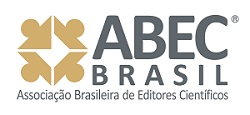Effectiveness of a cherry coffee sorter prototype with image recognition using machine learning
DOI:
https://doi.org/10.5039/agraria.v18i1a2586Keywords:
Catimor, CNN, computer vision, YOLOAbstract
The production of specialty coffees is the main objective of coffee growers worldwide and depends on the selection of optimal grains; however, especially in Latin America, they are processed manually and are influenced by subjectivity. The objective of the article was to verify the effectiveness of a cherry coffee sorting prototype with image recognition using machine learning in real time compared to the traditional method in the Valle Grande Association, Peru. Covolutional neural network processing was used. 24,000 images labeled in the Labellmg program of green, ripe, pinton, over-ripe and dry Catimor grains were trained with the YOLOv3 algorithm. The results describe the mechanical-electronic design and assembly procedure of the prototype with the necessary technical specifications for its replication; In addition, they demonstrate their effectiveness in reducing the selection time by approximately 3 hours, with a precision level of 94.0% in four samples of 100 kg of coffee. It is concluded that the prototype is a potential alternative, reducing cost, saving time and providing a useful tool to guarantee the selection of grains that allow obtaining quality higher than 83 SCAA points.



